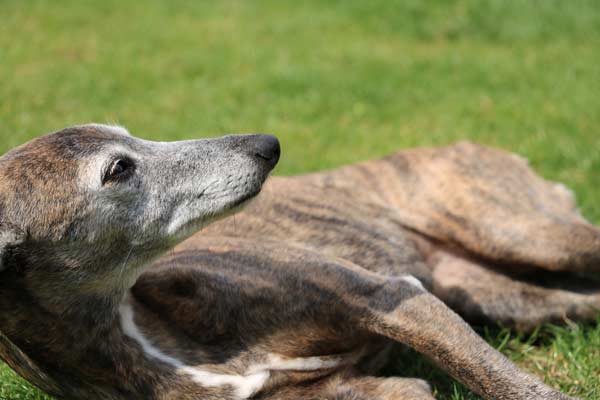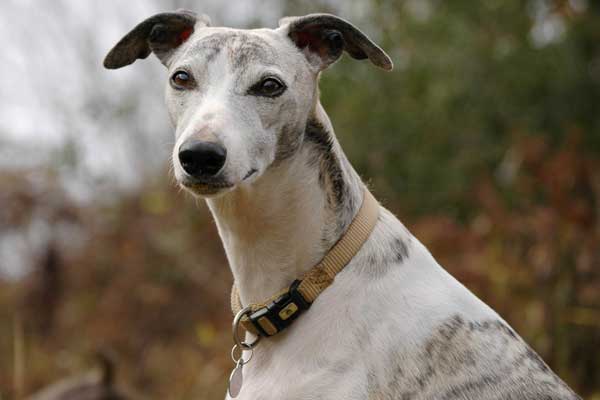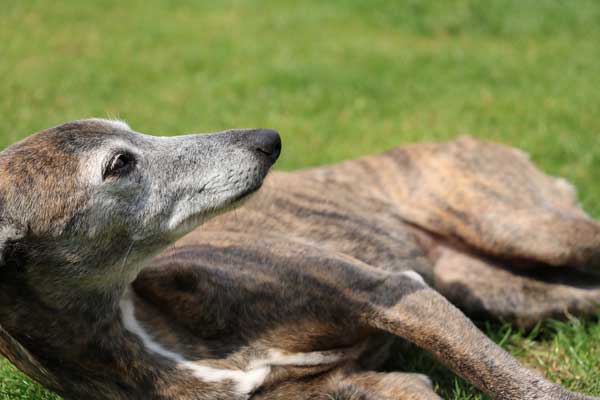Why Do Whippets Shake? The Science Behind Your Whippet’s Shivering and Its Relation to Discomfort
Whippets, known for their slim physique and short fur, are distinct dogs. Despite their fragile appearance, they are robust and energetic. However, many whippet owners might observe their pets shaking or trembling.
There are several reasons why a whippet might shake. A principal reason is simply feeling cold.
Unlike other breeds with denser fur, whippets have minimal body fat, making them more vulnerable to harsh temperatures. Moreover, they are more prone to becoming frightened, which can lead to shaking.
When you see your whippet shaking, it is crucial to take note of the context and any additional symptoms they might display. While it could respond to cold weather or an unfamiliar situation, shaking might also indicate underlying health problems or anxiety.
By comprehending the potential causes of this behavior, you can provide better care for your beloved pet and ensure their overall well-being.
Why Do Whippets Shake?
An Overview of Whippets
Whippets are a breed of dog known for their slender build and short fur. They are often called “miniature greyhounds” because of their similar appearance and athleticism. Whippets are intelligent and affectionate dogs that make great pets for families and individuals.
However, whippets are also known for their tendency to shake or shiver. This behavior can concern owners, especially if unsure of the cause. There are several reasons why whippets might shake, which can range from normal behavior to underlying health issues.
The Science Behind Shaking
Dogs, including whippets, naturally exhibit shaking behavior for various reasons. They may shake to regulate their body temperature, remove excess water, or alleviate stress. Typically, shaking indicates that a dog is experiencing discomfort or anxiety.
Whippets, in particular, may shake for several reasons. Primarily, their low body fat and thin coats make them more prone to feeling cold, which can result in shivering or trembling.
Whippets can also become anxious or stressed in new or unfamiliar situations as a sensitive breed. They may shake or shiver to release tension and self-soothe in response to feeling nervous or frightened. Additionally, shaking may be a part of their body language.
It is usual for whippets to shake, and this should not raise any alarm. Nonetheless, if your whippet shakes excessively or displays additional symptoms, it is vital to seek a veterinarian’s advice to eliminate the possibility of any underlying health problems.
Common Reasons for Shaking in Whippets
Whippets, a dog breed recognized for their slender physique, minimal fur, and athletic nature, may sometimes display shaking or shivering behavior. This can be problematic for their owners. The following list outlines some of the most prevalent reasons behind this shaking:
Anxiety and Stress
Like all dog breeds, Whippets can also experience stress and anxiety due to various factors. These can include separation anxiety, sensitivity to loud noises like thunderstorms and fireworks, or adjusting to unfamiliar surroundings. Whippets may respond by shaking or trembling when faced with stressful situations, resulting from their nervous system reaction.
Excitement and Happiness
Whippets, known for their energetic and playful nature, often exhibit shaking or trembling behaviors when they experience excitement or happiness. This reaction stems from releasing adrenaline and various hormones in their bodies during enjoyable activities or exercise.
Cold Temperatures
Whippets have a thin coat and minimal body fat, increasing their vulnerability to chilly temperatures. Exposure to cold weather may cause their bodies to shudder, generating heat and maintaining a stable body temperature.
Medical Conditions and Underlying Health Issues
Shaking in whippets can also indicate an underlying medical condition or health issue. Some common health issues that can cause shaking in whippets include hypoglycemia, kidney disease, seizures, and generalized tremor syndrome.
In cases where a whippet exhibits excessive trembling or displays additional indications of sickness like vomiting, diarrhea, or weakened muscles, it becomes crucial to seek a veterinarian’s assessment promptly.
Shaking in whippets can be caused by various factors, including anxiety, excitement, cold temperatures, and underlying health issues. Pay attention to your whippet’s body language and behavior to determine the cause of their shaking and take appropriate action if necessary.
A warm blanket or jacket can help keep them warm in cold temperatures while seeking veterinary care is required for underlying health conditions.
How to Help Your Whippet Stop Shaking
Whippets are prone to shaking for various reasons, such as anxiety, fear, cold temperatures, stress, excitement, etc. While some shaking is regular, excessive shaking can indicate an underlying health issue. Here are some tips to help your whippet stop shaking:
When to See a Vet
If your whippet displays excessive shaking, it’s crucial to consult a veterinarian to eliminate potential health problems. Shaking may signify various issues, such as pain, seizures, poisoning, kidney disease, etc.
Should your whippet also experience vomiting, diarrhea, or other symptoms indicative of a medical condition, it’s highly recommended to seek expert assistance.
Tips for Calming Your Whippet
If your whippet shakes as a result of anxiety, fear, or stress, consider the following strategies to help them relax:
- Create a cozy environment: Offer your whippet a warm blanket or coat to keep them snug. Whippets have thin coats, making them prone to cold temperatures, so maintaining their warmth is crucial.
- Exercise: Engaging in regular exercise can alleviate anxiety and stress in whippets. Physical activity warms them up and builds muscle, reducing muscle contractions that cause shaking.
- Positive reinforcement: Praise your whippet when they display calm behavior. Reward them for approaching new people without fear or nervousness.
- Avoid stressors: Whippets are sensitive to loud noises and thunderstorms. Keep them away from situations that may provoke shaking. For example, during fireworks, could you place them in a quiet room?
- Behavior modification: If your whippet suffers from separation anxiety, gradually expose them to being alone. Start with brief periods and slowly increase the duration.
- Body language: Familiarize yourself with your whippet’s body language to detect when they feel anxious or scared. This allows you to intervene before excessive shaking occurs.
In summary, whippets shake for various reasons, and it’s vital to pinpoint the root cause to help them stop shaking. If you suspect a health issue is causing your whippet’s shaking, consult a professional immediately.






